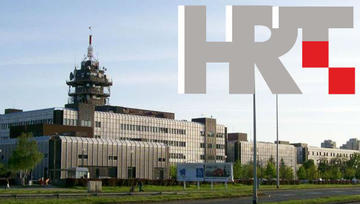
The EBU is deeply concerned about the threat to HRT in Croatia by plans to make a reduction of the licence fee part of the negotiations to form a new government
Link: EBU
The EBU is deeply concerned about the threat to HRT in Croatia by plans to make a reduction of the licence fee part of the negotiations to form a new government. The MOST party want to make a 19% cut in the licence fee a pre-condition of entering into a coalition with HDZ.
The EBU believes that this opportunistic move is an attempt to weaken the independence and editorial quality of HRT which is still the most trusted and relevant source of information in Croatia. The EBU Director General Ingrid Deltenre has written to the President Andrej Plenković and President of MOST Božo Petrov to express her concern.
HRT TV reaches nearly 75% of the Croatian population each week. It is a role model for successful and relevant public service media (PSM) in the region with a TV market share of 28.4%, the highest in the Balkans.
Deltenre said: “Sustainable funding for HRT is essential to protect its crucial role in society. Discussions on the level of the licence fee should be held publically and not form part of coalition negotiations.”
Currently the licence fee is 128 euros a year, lower than the average of EBU Members. It has remained static for 4 years, even though HRT had the legal right to increase the rate. In that time pressure has increased on the broadcaster following a government decision that HRT take over covering the cost of licences for households exempt from paying the fee.
If a reduction of 19% is made, the cut in revenues for HRT would not only lead to severe cuts in programming, but would also undermine the functioning of PSM in Croatia.
Deltenre concluded: “Underfunding of PSM undermines the opportunity for free and impartial debate. We urge politicians, responsible institutions, and future members of the Parliament to refrain from politicising PSM and to protect its values for the benefit of all Croatian people.”
Questa pubblicazione è stata prodotta nell'ambito del progetto European Centre for Press and Media Freedom, cofinanziato dalla Commissione europea. La responsabilità sui contenuti di questa pubblicazione è di Osservatorio Balcani e Caucaso e non riflette in alcun modo l'opinione dell'Unione Europea. Vai alla pagina del progetto
Log in or create a user account to comment.

 EBU concerned about threat to HRT and public service media in Croatia
EBU concerned about threat to HRT and public service media in Croatia




 Tutti i contenuti disponibili sul sito di Osservatorio Balcani e Caucaso sono distribuiti con licenza
Tutti i contenuti disponibili sul sito di Osservatorio Balcani e Caucaso sono distribuiti con licenza  To Top
To Top